Life under Isis: As long as its enemies remain divided the militants will not be defeated
Inside the 'Islamic State' - part five: The jihadis can conscript, train and arm thousands of fighters, but their resilience is based on their local and Western opponents waging separate wars, says Patrick Cockburn in the final part of his series
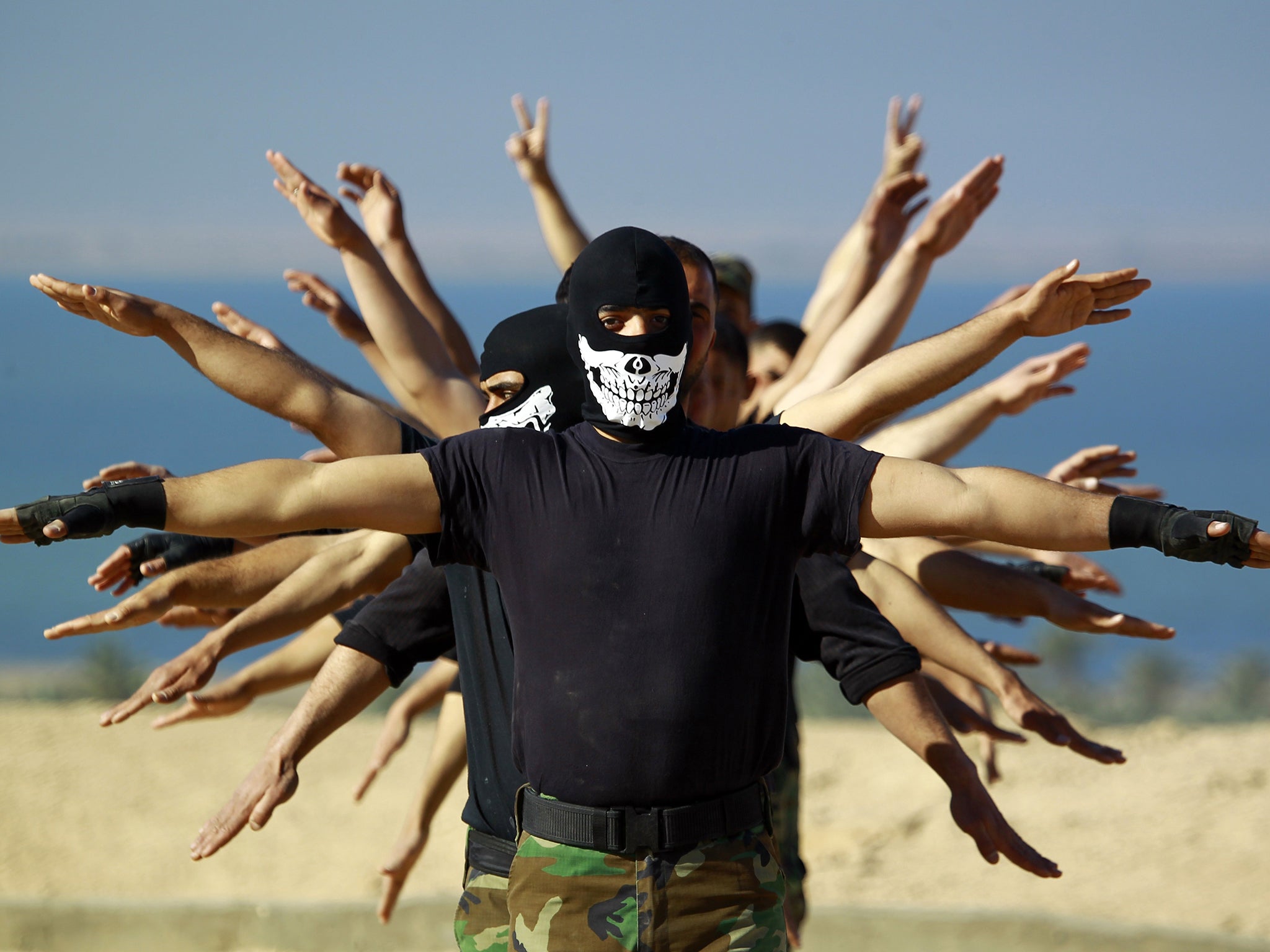
Your support helps us to tell the story
From reproductive rights to climate change to Big Tech, The Independent is on the ground when the story is developing. Whether it's investigating the financials of Elon Musk's pro-Trump PAC or producing our latest documentary, 'The A Word', which shines a light on the American women fighting for reproductive rights, we know how important it is to parse out the facts from the messaging.
At such a critical moment in US history, we need reporters on the ground. Your donation allows us to keep sending journalists to speak to both sides of the story.
The Independent is trusted by Americans across the entire political spectrum. And unlike many other quality news outlets, we choose not to lock Americans out of our reporting and analysis with paywalls. We believe quality journalism should be available to everyone, paid for by those who can afford it.
Your support makes all the difference.Isis still rules most of the territories it captured last year in Iraq and Syria. It may no longer be expanding, but it is little diminished, despite 2,500 US air strikes hitting its military forces and economic infrastructure.
The much heralded offensive by some 25,000 Iraqi government forces aimed at recapturing the small city of Tikrit has ground to a halt over the past week, though US officials say the city is held by only a few hundred Isis fighters. The faltering assault, though it may ultimately succeed, bodes ill for plans to recapture the much larger city of Mosul later in the year.
The battle for Tikrit illustrates one of the great strengths of Isis: the divisions of its many enemies.
In this case the attack force is made up of 20,000 Shia militia that are armed and directed by Iran. There are only 3,000 Iraqi army soldiers. The US says it is not supporting the advance with air strikes because it has not been asked to do so.
Crucially, the US and its allies are not giving air support to the Shia militias and the Syrian army, which are the two largest ground forces opposing Isis. The importance of ground-air co-operation was made plain by the siege of the Syrian-Kurdish town of Kobani which Isis failed to take thanks to co-operation between Syrian Kurdish fighters and American aircraft that carried out 700 air strikes. Likewise in Iraq, the only place where the US and its allies were able to help drive back Isis was in Sinjar, where their aircraft were co-operating with Iraqi Kurdish Peshmerga.
The Islamic State can probably hold out against attacks from a US-backed coalition or an Iranian-backed one if each fights separately, but not against a combination of the two. American and Western European leaders may feel that they have done enough to pen Isis into the admittedly vast area it conquered last year. Certainly, it has made no significant advances since last October and has lost some territory, but the belief that it can safely be left to its own barbaric devices is short-sighted.
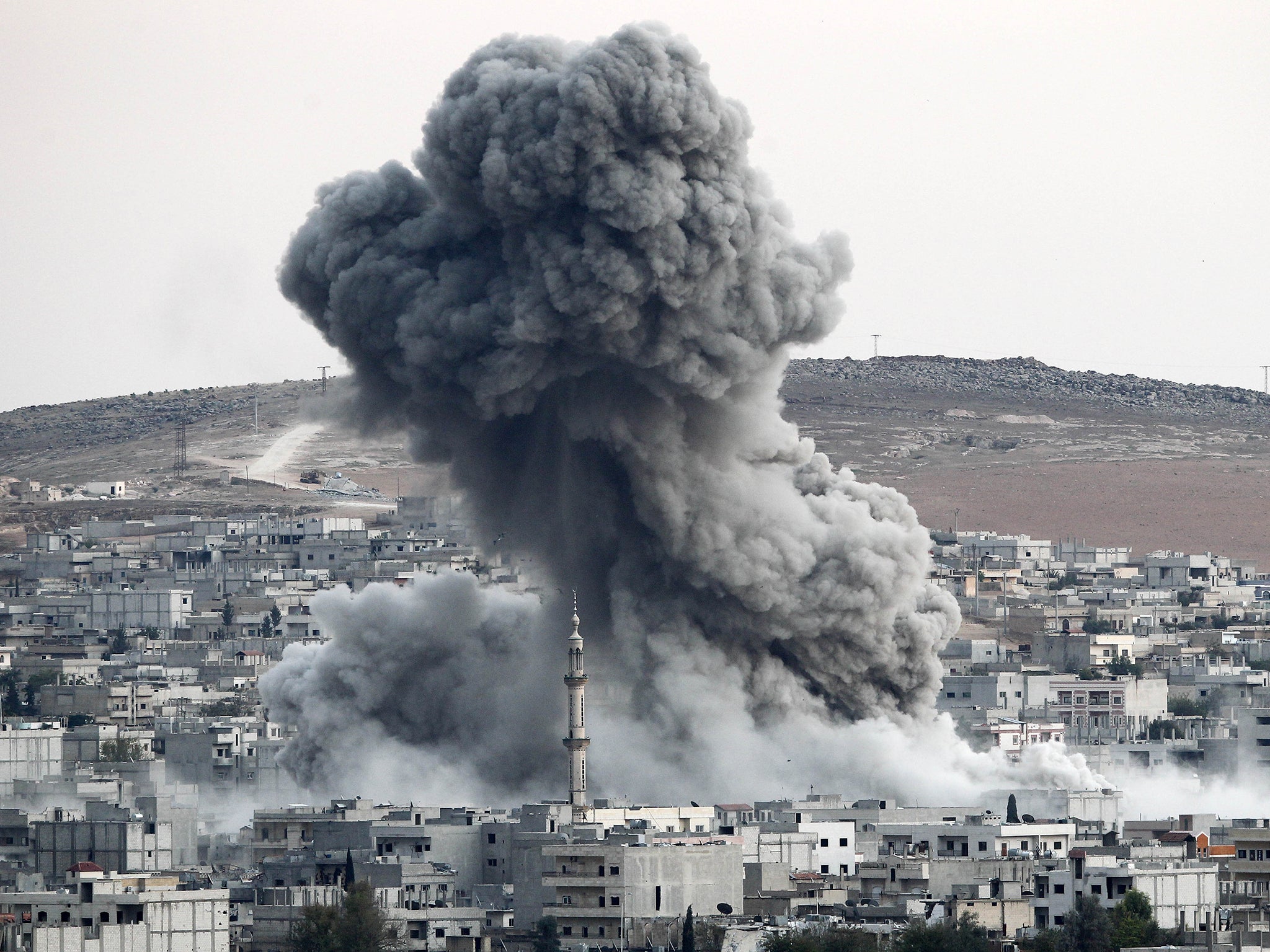
The Islamic State is not going to implode because of mounting popular discontent within its borders. Its enemies may deride its pretensions to be a real state, but in terms of the ability to conscript troops, raise taxes and impose its brutal variant of Islam, it is stronger than many neighbouring countries.
In recent weeks The Independent has sought to discover the real state of feeling among people living within that portion of the Islamic State inside Iraq. In a series of interviews published this week we have spoken to Iraqis who have just left the self-declared caliphate and can tell from recent experience what it is really like. We asked people from Sunni Arab towns and cities along the Tigris and Euphrates rivers such as Mosul, Fallujah, Ramadi, Karnah and Hit what their lives are like and how they rate the chances of the Islamic State surviving.
Many express detestation or disillusionment with their present rulers, but none predicted their imminent defeat. Almost all those questioned are Sunni Arabs and many said that, bad though Isis might be, the alternative in the shape of a corrupt and sectarian government might be even worse. “We hate Isis but imagine if the Shia militia were the substitute for it,” said Faisal, a former government employee from Hit on the Euphrates west of Baghdad quoted in this series on Wednesday. “The situation would be more horrible. Every substitute is worse than the previous one.”
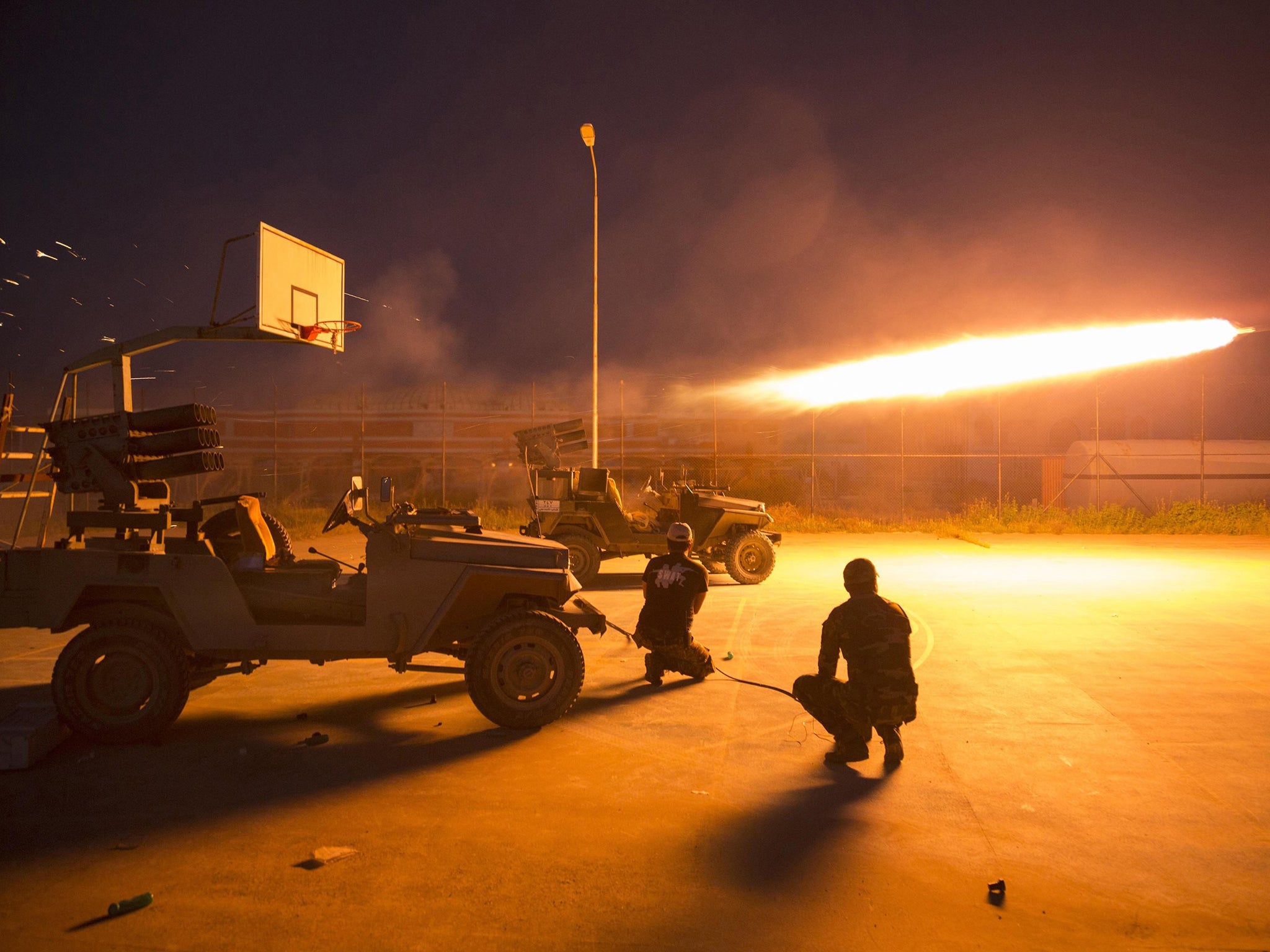
Isis feels itself under growing military and economic pressure, but it has also shown itself capable of rising to the challenge. It has long borders to defend, requiring many more soldiers than the 5,000 or so it fielded before the capture of Mosul on 10 June last year. Its front line with the Iraqi Kurds alone is 600 miles long (compare this with the Western Front in 1914 that was just 440 miles long). The response by Isis is to conscript one man of military age from every family living in territory under its control and, since the population it rules numbers about six million, this means that it is becoming a far larger military organisation than it was last year.
Of course, seeing their sons disappear into an army from which they may never return, is not popular with their families. Many interviews conducted by The Independent were with people who had recently fled Islamic State territory because military service has become obligatory (previously men who paid a large fine were excused service). Ali Hussein Mustafa, a student in Mosul, explains that his family finally left because Isis recently amended the conscription law to include men under 18, which meant that his younger brother became liable for military service. Society within the self-declared caliphate is being militarised.
The standard of living within the Islamic State is deteriorating, but this will not necessarily weaken its authority because what resources there are go to its fighting forces. Hamza, the fighter who defected and was cited in Tuesday’s article, says that while he was not particularly well paid (the equivalent of £230 a month) this did not matter because the money was “in addition to many privileges, including food, fuel and, more recently, access to the internet”. The same view is repeated by Ahmad, a shopkeeper in Mosul, who adds that foreign fighters do even better, with excellent privileges in terms of salaries, spoils and even captives.
The new recruits are well trained. The Islamic State continues to blend religious fanaticism with military expertise. Kurdish commanders who have come under attack in recent weeks say that Isis units fight as well as ever and are able to sustain heavy casualties without flinching.
At the same time, Islamic rule is becoming more unpopular because of its bizarre religious ideology, conscription, falling standards of living and its extreme violence. This might seem to provide fertile soil for a movement to resist Isis as happened in 2006-07 when the US succeeded in turning many of the tribes against al-Qaeda in Iraq which, like Isis today, had become hated and feared by many Sunni.
But today there is unlikely to be a repeat of the anti- al-Qaeda “Awakening Movement” because Isis is stronger than its predecessor and there is no American army in Iraq to fund, arm and protect an anti-Isis Sunni armed opposition.
The terrible fate of tribes and all others who oppose Isis was explained in an Independent interview earlier this year with Sheikh Na’eem al-Gu’ood, the leader of the previously powerful Albu Nimr tribe of western and central Iraq. Last year, the Albu Nimr did rise up against Isis, much as they had done against al-Qaeda in Iraq eight years earlier. They fought for almost 11 months before they ran out of ammunition and were overwhelmed.
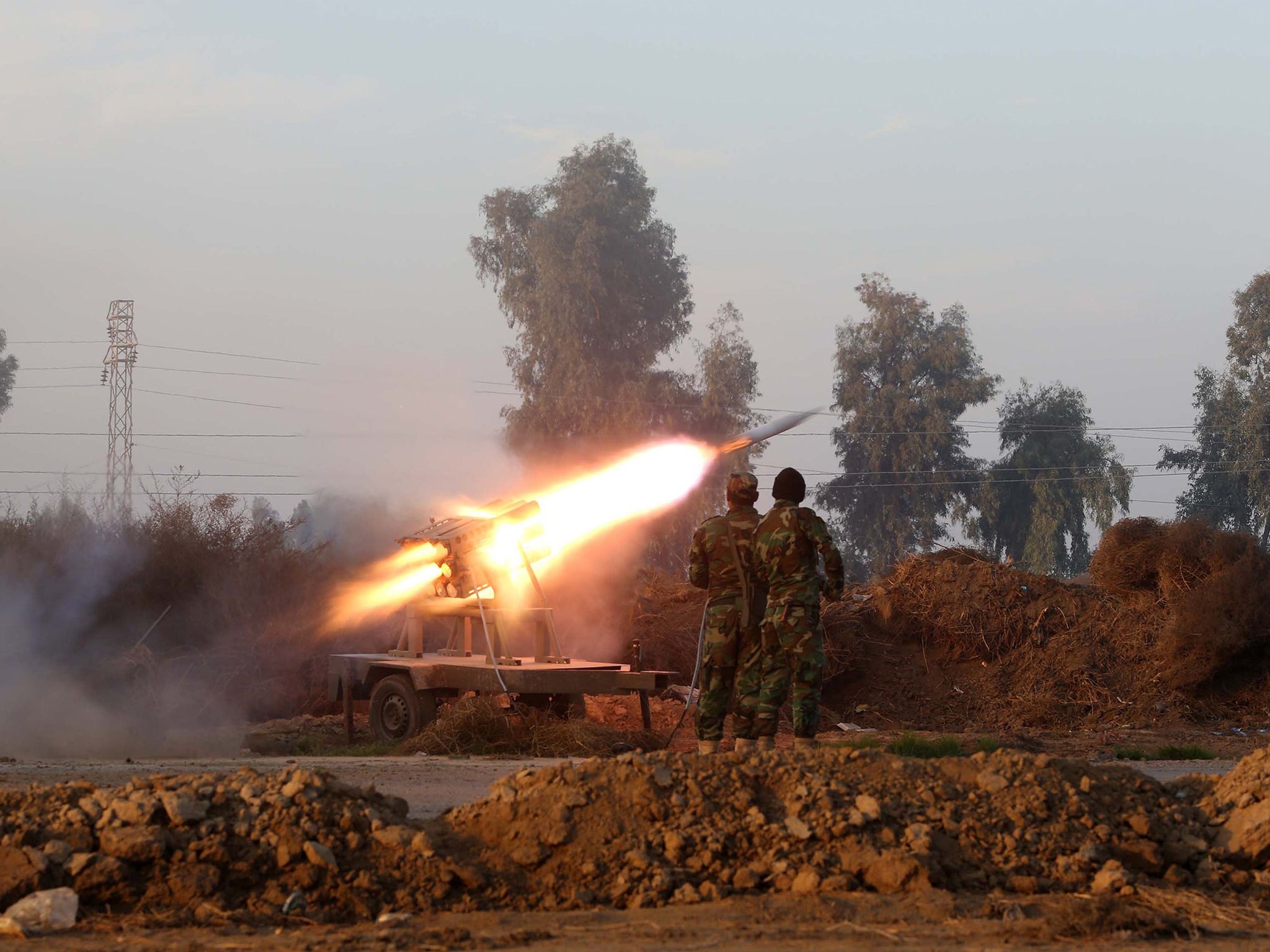
Sheikh Na’eem says that since the first killings of Albu Nimr, which began on 25 October last year “the total number of victims in our tribe has reached 864 dead. In addition to which there are many missing whose numbers we don’t know.” He describes it as genocide directed against a single tribe. Nobody was spared Isis’s vengeance, with women and children being killed and thrown into wells. Survivors have fled into the desert or other parts of Iraq.
Asked why Isis was able to take over the giant Anbar province in so short a time, Sheikh Na’eem says: “The main reason is that 90 per cent of the tribes in Anbar collaborated with Isis or joined them except for ourselves.” He complains bitterly that the Albu Nimr got no support from the Iraqi government or the Americans which led to the mass killings. He says the situation is very different from 2006 when his tribe fought alongside the US Army. “Later when Isis came, they considered us the friends and allies of the Americans,” he says. “That is why Isis fights us and considers the killing of our men, women and children lawful.”
Isis doesn’t only target hostile tribes but anybody who has worked for the Iraqi government as soldiers or policemen. At Harshem refugee camp on the outskirts of Irbil, Sunni Arabs explain why they fled there. Ghanim, a 60-year-old former Iraqi army soldier who supports himself on a crutch because he lost a leg fighting in the Iran-Iraq war, says: “I fled because my son is fighting in the Iraqi army today and Isis would punish us for this.”
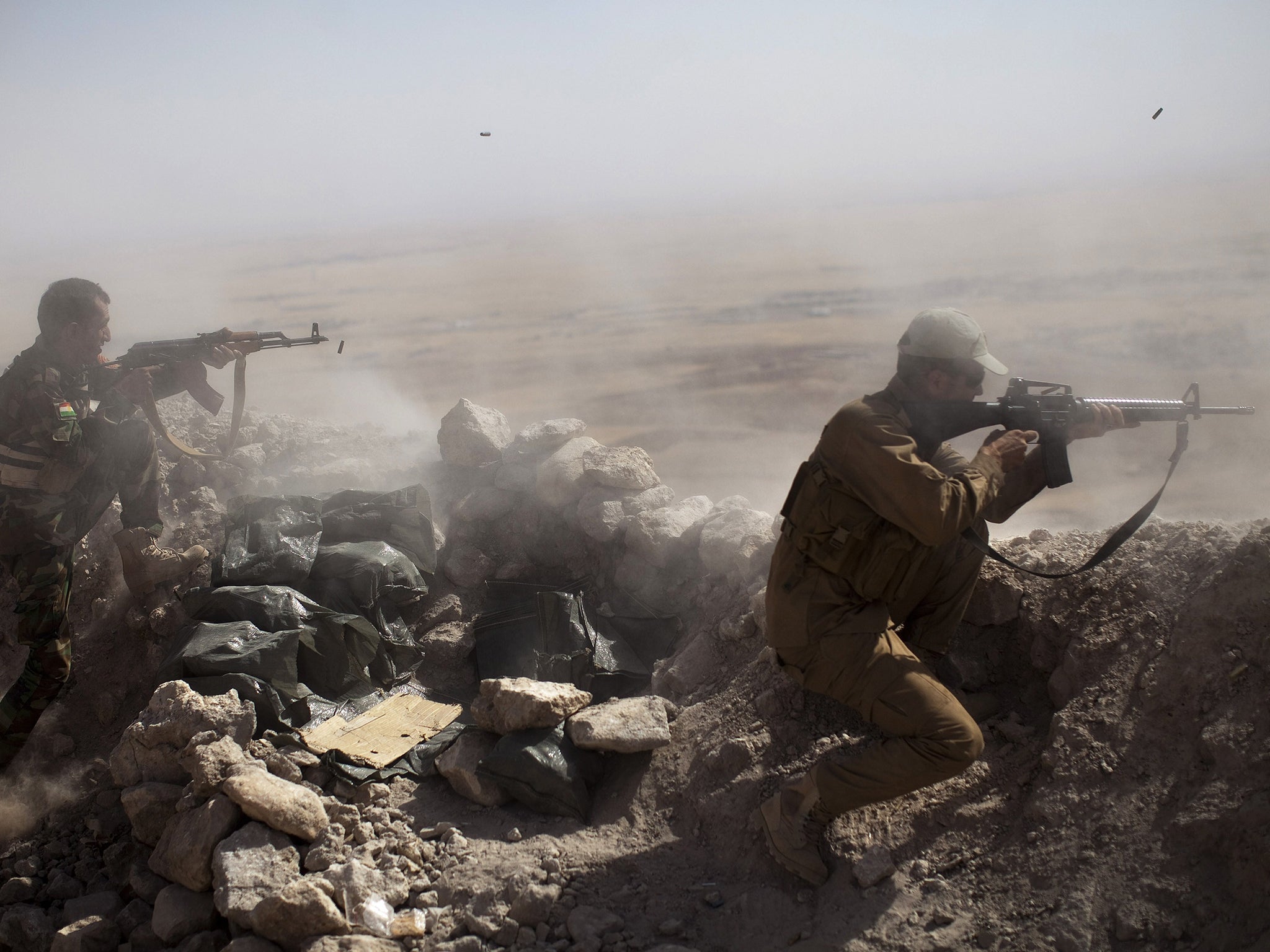
Isis likes to demonstrate that its vengeance is unrelenting. Abu Ahmed, a community leader who fled to Irbil when Isis took over in Mosul last June, says he left his 100-year-old mother behind in his house in Mosul. One day last September: “Isis men came and took my mother out of the house. Then they blew it up and placed a video on Facebook to show me the destruction of my home.”
A rebellion against Islamic State is unlikely to succeed unless its rule is first weakened by military defeat. That defeat may be a long time coming so long as its external enemies remain divided.
War crimes: UN accuses Isis
The UN has said that Isis may have committed genocide in trying to wipe out the Yazidi minority in Iraq, as well as war crimes against civilians, including children.
In a report based on interviews with more than 100 witnesses, the UN Human Rights Office urged the Security Council to refer the issue to the International Criminal Court to prosecute perpetrators, including foreign members of the extremist group.
The report also said that Iraqi security forces and affiliated militias “may have committed some war crimes” while battling the insurgency, including killings, torture and abductions.
“Clearly international war crimes and crimes against humanity and possibly genocide appear to have been committed… The genocide part relates particularly to the Yazidis,” Hanny Megally, of the UN Human Rights Office, said. “We are very keen to ensure evidence is preserved, protected and collected... for future accountability.”
The UN investigators urged the Baghdad government to join the International Criminal Court or pursue the crimes under domestic law. The UN Human Rights Council launched its inquiry in September.
There was a “manifest pattern of attacks” by Isis on Yazidis, as well as Christians and other ethnic and religious minorities, the report said.
A “huge number of foreign fighters” were implicated in the atrocities, largely from neighbouring countries, but also from a few Western states, said Suki Nagra, chief UN investigator. She said roughly 3,000 women, children and some men remained in Isis custody. Ms Nagra added that mass graves were being uncovered in areas recently retaken by Iraqi government forces from Isis.
Separately, there were reports that Iraqi authorities had unearthed 13 bodies in a grave, east of Tikrit, where security forces are engaged in an offensive against Isis.
UN investigators also cited allegations that in September Isis had used chlorine gas, a prohibited chemical weapon, against Iraqi soldiers in the western province of Anbar.
Isis has treated captured women and children as “spoils of war”, often subjecting them to rape or sexual slavery, the report added.
Reuters
Join our commenting forum
Join thought-provoking conversations, follow other Independent readers and see their replies
Comments